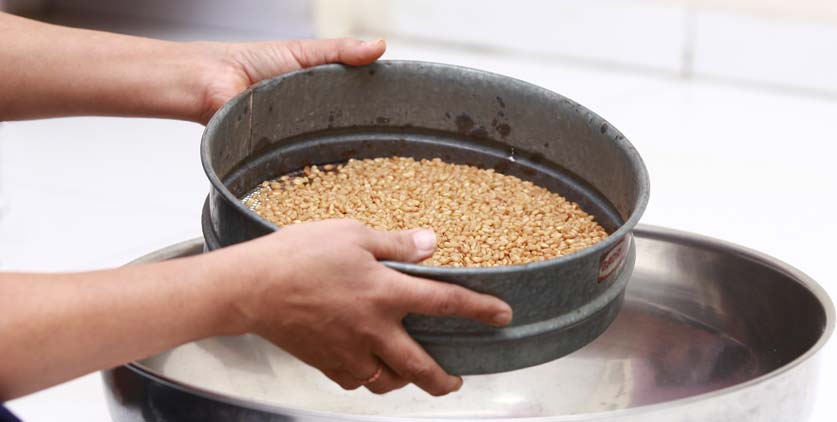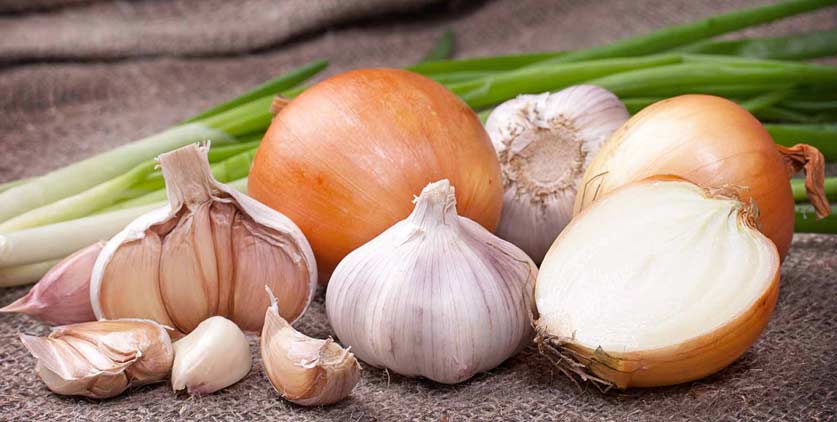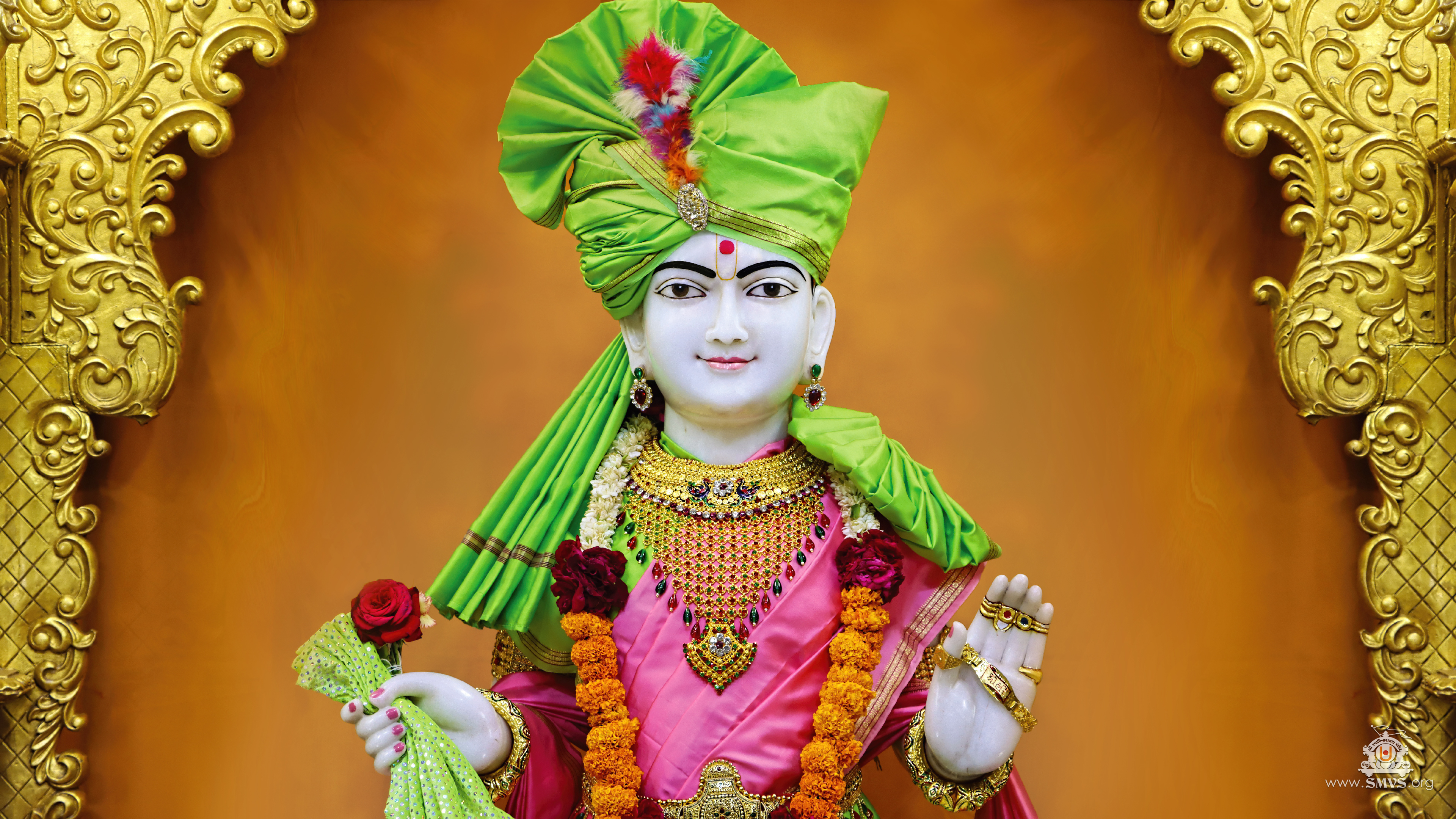
Spiritual Practices
Panchvartaman
Five Vows (Panch Vartman)
Introduction
Shriji Maharaj established five fundamental vows for all devotees to qualify as His true followers. In the spiritual tradition, these are collectively known as the Panch Vartman. Distinct sets of five vows are prescribed for householders (gruhasthashrami) and renunciants (tyagashrami). One who sincerely observes these vows is considered worthy of being an ideal devotee of Shriji Maharaj.
Five Vows for Householders
1) Daru Vartman (Vow of non-consumption of Liquor)

Anything that intoxicates or stimulates the senses and mind when seen, eaten, drunk, heard, or experienced is considered equivalent to alcohol.
Examples include tea, coffee, cigarettes, tobacco, betel nuts, gutkha, paan, marijuana, opium, beer, or any alcoholic drink.
Not only must one refrain from using these, but also from offering them to others.
Medicines that contain alcohol should also be avoided.
Watching indecent scenes through television, cinema, serials, dramas, gambling, betting, lottery, circus, or modern internet platforms is also considered an intoxicant as it corrupts the mind.
2) Mati Vartman (Vow of not eating non-veg. food)
Mati signifies abstaining from meat and any food involving harm to subtle life forms or prohibited by scriptures.
Eating meat, eggs, or items and medicines that contain them should be avoided.

Using unfiltered water, milk, oil, or ghee also violates this vow.
Eating commercially made chocolates, biscuits, sodas, ice creams, kulfis, and soft drinks should be avoided, as one cannot be sure they are prepared according to the rules given by Bhagwan Swaminarayan, which may cause a violation of this vow.
Unclean grains, flour, and vegetables infested with insects, like certain cabbages or leafy greens, must be avoided.

Items like onions, garlic, and asafoetida, known for tamsic qualities and high pungency, are not to be eaten.
Processed items like cheese, bread, and paneer sold in markets should be avoided, as one cannot judge if they were made according to the rules given by Bhagwan Swaminarayan.

In short, householders must strictly abstain from these substances at home. Food from places or events where religious discipline of cleansing food not fully maintained should not be consumed. To please Bhagwan Swaminarayan, devotees should prepare and filter all ingredients at home, offer them to God, and partake only as sanctified prasad.
If compelled to use water from outside, it should be filtered before drinking.
3) Chori Vartman (Vow of not committing theft)

Stealing is not just secretly taking something; it also means taking or using anything, even small things, without permission from the owner.

Other prohibitions:
Never snatch or forcibly take anything.
Do not pick up found items.
Do not misuse entrusted deposits.
Do not accept bribes, commit fraud, adulterate, cheat, or deceive.
Do not trespass or stay on someone’s property without permission.

While employed, do not waste work hours—time theft is also stealing.
Do not misuse government resources or utilities.
Do not engage in illegal business or employment.
Stealing from God: From legitimate earnings, at least 10% must be set aside for charity; if financially weak, a minimum of 5% must be given. Devotees are encouraged to gladly offer a tenth of their time or life in serving Bhagwan and sants; not doing so is gently considered as taking away what rightly belongs to the God.
4) Averi Vartman (Vow of observance of Celibacy)

Even while living a household life, one must maintain celibacy to please Bhagwan Swaminarayan.
A man must never look lustfully at another woman, nor a woman at another man.
A man must not have physical contact or private meetings with another woman; likewise for women with other men.
Even within close family, such as a mother, sister, or daughter, a man should keep respectful distance and should not stay alone with them; the same applies for women with fathers, brothers, or sons.
One must avoid obscene content in plays, cinema, TV shows, channels, serials, or the internet.
Avoid wearing or viewing revealing or provocative clothing.
Do not participate in garba, parties, discos, or pop music events that arouse sensuality.
Avoid obscene books, magazines, articles, or images.
Marital relations must be free of obsession and only at appropriate times: not on Ekadashi, a day before or after it, on Shriji Maharaj’s Pragatya day and related days, during Amavasya, the month of Shravan, Adhik Maas, or during religious festivals and pilgrimages.
5) Vatalavu nahi and Vatlavava nahi (Do not get proselytized and do not proselytize)
One should never eat food that violates religious principles, nor serve such food to anyone.
It is better to avoid eating at places where these vows are not followed fully, and also to kindly avoid serving food at home if the vows might not be kept properly.
Five Additional Vows for Renunciants
In addition to the householders’ vows, renunciants (tyagi santos) must observe the following:
1) Nishkami Vartman (Vow of non-lust)
Maintain complete celibacy in eight aspects:
Do not associate with women.
Do not touch women’s clothes.
Do not physically touch women.
Do not discuss women’s beauty or appearance.
Do not dwell upon thoughts of women.
Do not gaze at pictures of women or touch them.
Do not entertain any thought of possessing a woman; thus, the act never occurs.
Do not converse with women.
To protect this purity, sants must never travel alone but always in pairs. If a mistake occurs, perform prescribed atonement in Nishkamsuddhi'.
2) Nirlobhi Vartman (Vow of non-greed)
A renunciant should not possess or hoard even a penny.
Own no more than eleven garments; never keep a twelfth.
Clothes should be coarse and plain, not fine or luxurious.
Do not dye clothes with artificial colors but with natural earth from Rampur village.
Do not wear stitched garments.
Do not keep or use any luxurious items or silk garments.
3) Nirmani Vartman (Vow of humility)
Maintain absolute humility. Whether honored or insulted, remain even-minded, seeing both as Bhagwan Swaminarayan’s wish.
4) Nisnehi Vartman (Vow of detachment)
Renunciants must sever ties with parents, siblings, or any close relatives from their previous household life.
Maintain no attachment to birthplace or childhood home.
Cultivate attachment only towards Bhagwan Swaminarayan and His devotees.
5) Niswadi Vartman (Vow of non-gourmandize)
Do not eat or drink using metal utensils; use only wooden bowls and water gourds.
Whatever food is offered by Bhagwan’s wish should be mixed with water and eaten tastelessly, with detachment.
This is the sacred path of the Panch Vartman, which purifies one’s life and pleases Bhagwan Swaminarayan.












